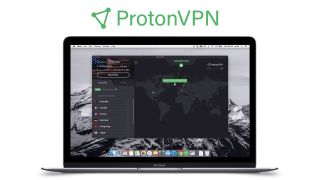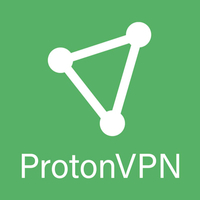Proton VPN Secure Core: what is it and why should you use it?
Secure Core offers serious protection – but is it worth it?

Proton VPN is widely regarded as one of the best VPN services on the market, and coming from the same Swiss-based team responsible for the respected ProtonMail, it’s often thought of as a truly secure VPN, too.
However, it’s not just the clout of the Proton name that gives the VPN its kudos – it has the goods to back it up, too. One of its most interesting features is its Secure Core option, so here we’ll be explaining what Proton VPN Secure Core is, how it works, who should use it, and whether it’s a deal breaker for those looking to sign up to a new VPN.
Tom's Guide is collaborating with TechRadar to look at how our readers use VPNs with different devices so we can improve our content and offer better advice. This survey shouldn't take more than 60 seconds of your time. Thank you for taking part.
What is Proton VPN Secure Core?
In simple terms, Secure Core routes your connection through an extra-secure server bank in either Iceland, Switzerland or Sweden before connecting you to your chosen server location.
So, for example, if you’re in the UK and want to use Secure Core to connect to a server in Turkey, your traffic might travel like this:
UK > Sweden > Turkey
To activate Secure Core, all you need to do is click the padlock icon on the Windows 10 VPN, Mac VPN and Linux VPN applications. Then select your desired route to your destination server.
On the iOS VPN and Android VPN apps, slide the Secure Core switch to On – you’ll then be shown all the available routes to Secure Core-supported locations.
Sign up to get the BEST of Tom’s Guide direct to your inbox.
Upgrade your life with a daily dose of the biggest tech news, lifestyle hacks and our curated analysis. Be the first to know about cutting-edge gadgets and the hottest deals.
What are the pros and cons of Secure Core?
The reasons for using Secure Core are twofold. Firstly, your traffic is getting doubly encrypted, starting with your device to the Secure Core server, and then again from the Secure Core server to your destination server.
This means your traffic is never unencrypted on the journey between the Secure Core server and the destination, and there’s no direct contact between your device and the end server – desirable if you’re worried about the server in your chosen destination being compromised (Turkey is a good example), but still need to connect.
This also defends against network monitoring that can link activity to users. For more on this, check out Proton VPN’s own article on the subject.
The second benefit is that the Secure Core servers are – surprise, surprise – very secure. Based in countries with favorable data laws, every Secure Core server is owned by Proton VPN itself, and also housed in a physically secure location – the Sweden and Switzerland servers are in underground data centers, and the Iceland servers are on a former military base.
While server banks are, in reality, unlikely to be physically compromised, this certainly sounds good and demonstrates Proton’s commitment to user privacy.
However, when using Secure Core servers you may well notice a drop in connection speeds. This is due to the fact that your traffic will simply be travelling further, and is encrypted and decrypted twice rather than once.
Secure Core servers also tend to get a little congested at times, and this will again impact connection speeds.
Finally, Secure Core is only available for a selection of locations, and while there are more routes available than with NordVPN’s Double VPN and Surfshark’s MultiHop, you may still find the location you need isn’t available.

How much does Secure Core cost?
After Proton's full rebrand and price shake-up, Secure Core is available on any paid plan.
Starting at $4.99 a month, it's slightly cheaper than it used to be, and while it's hardly bargain-basement, you'll also get Proton VPN's excellent Netflix VPN powers too.
Who should use Secure Core?
For day-to-day usage, Secure Core will probably be overkill, and probably not worth the trade-off between connection speed and security.
However, those connecting to potentially compromised locations like Russia, China, Turkey, or Iran should definitely consider using Secure Core, even if just for the extra peace of mind it offers. Those in sensitive professions like journalism may also appreciate the added security.
Do any other VPNs offer a similar feature?
As mentioned above, NordVPN and Surfshark both offer a multi-server connection feature, but in truth, Proton VPN is the only provider we’re aware of that has taken the extra physical precautions in terms of server location. Whether you consider that worthwhile is up to you.
Also, compared to NordVPN and Surfshark, Secure Core does offer a greater range of destination locations despite the conduit servers only being located in three countries. So, in short, Proton VPN doesn’t really have any rivals when it comes to this feature.
Is Proton VPN Secure Core a deal breaker?
Whether Secure Core should influence your buying decision is very much down to how you intend to use Proton VPN. For the highly privacy conscious, it does add another layer of security that’s not available anywhere else, but for the vast majority, the privacy regular Proton VPN servers (or any other quality VPN) provides will likely be plenty.
However, signing up to Proton VPN’s Plus plan will also get you access to Proton’s excellent streaming performance, so if that’s a deal breaker, Secure Core may well be a nice added extra that you may or may not use.
Swiss privacy and excellent streaming performance
Proton VPN is one of the top VPN providers on the market right now, and with features like Secure Core it'll appeal to those seeking maximum privacy online. However, it's also proved to be very effective for unblocking Netflix and other geo-blocked streaming sites, and is now a very compelling all-rounder.

Mo is VPN Editor at Tom's Guide. Day-to-day he oversees VPN, privacy, and cybersecurity content, and also undertakes independent testing of VPN services to ensure his recommendations are accurate and up to date. When he's not getting stuck into the nitty-gritty settings of a VPN you've never heard of, you'll find him working on his Peugeot 205 GTi or watching Peep Show instead of finally putting up those shelves.
